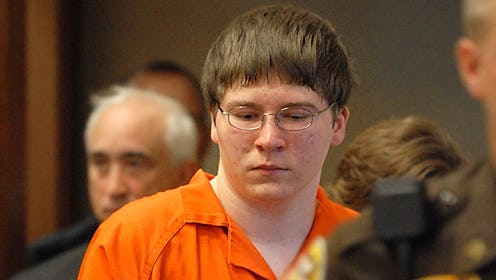
It's been a year since Making A Murderer premiered on Netflix and forced people to ask the question, "Who really killed Theresa Halbach?" and there's been a new development in the case. Or, rather, there's been new confirmation of an old development in the case. According to the Associated Press, the prosecution have argued that Brendan Dassey's confession was "legal."
The 27-year-old is currently serving a life sentence in his home state of Wisconsin for the 2007 murder of Halbach, after he told police that he helped his uncle Steven Avery rape and kill the freelance photographer. That confession led to his conviction of first-degree intentional homicide, second-degree sexual assault, and mutilating a corpse.
Making A Murderer tried to present a case for claiming that that Avery was wrongfully convicted by the Manitowoc County police department in Wisconsin, and, additionally, that Dassey was coerced into confessing. Even Avery's lawyers Dean Strang and Jerry Buting questioned the legality of Dassey's admission, helping the young man's appeals case. The Manitowoc Police Department adamantly denies the suggestion that Dassey and Avery were wrongfully convicted.
Dassey's post-conviction lawyer, Laura Nirider hoped that she could get Dassey released by proving that his confession was allegedly coerced. Back in August, U.S. Magistrate Judge William Duffin ruled that investigators tricked a then 16-year-old Dassey to confess to a crime that he didn't commit. The judge looked to overturn the conviction and release him in November.
But the 7th U.S. Circuit Court of Appeals in Chicago ordered Dassey to stay in jail throughout the appeal of the judge's original decision that his confession was coerced. In this latest appeals case, prosecutors, who are pushing to retry him for the same crime, are now arguing that Dassey "voluntarily confessed" to helping his uncle rape and kill freelance photographer Halbach.
According to the AP, Manitowoc's Deputy Solicitor General Luke Berg said that Dassey's claims that he was coerced into confessing to the murder of Halbach have "no legal or factual basis" and that the court of appeals has said as much. He argues that the court "upheld techniques the detectives used," by convicting him the first time around in 2007.
Dassey's lawyers have not commented on the new filing, but fans will get to learn more about Dassey's legal case in new episodes of Making A Murderer.